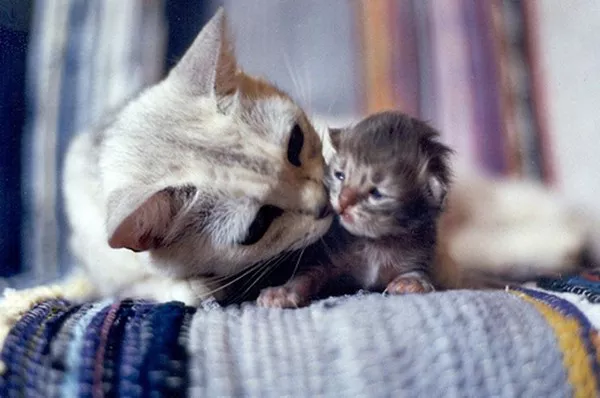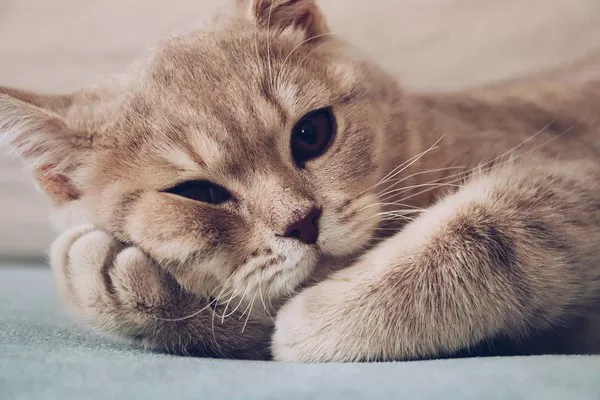Welcoming a new bundle of fur into your home is an exciting and rewarding experience. Kittens, with their adorable antics and tiny paws, quickly capture our hearts. If you’ve recently acquired a two-week-old kitten, you may be wondering how much they should weigh at this stage of their early development. In this article, we will delve into the topic of a two-week-old kitten’s weight, exploring what is considered healthy and factors that can influence their growth.
The Growth Journey of a Kitten:
Kittens, like all mammals, undergo significant growth and development during their first few weeks of life. They rely on their mother’s milk for sustenance, receiving crucial nutrients that aid in their rapid growth. Monitoring a kitten’s weight during this period is essential for ensuring their overall health and wellbeing.
Average Weight of a Two-Week-Old Kitten:
At the age of two weeks, a kitten typically begins to open its eyes and may even attempt to crawl or walk a little. Their weight serves as an important indicator of their growth progress. On average, a two-week-old kitten should weigh between 6 and 10 ounces (170-280 grams).
Factors Affecting a Kitten’s Weight:
Several factors can influence a kitten’s weight at the two-week mark. These factors include genetics, breed, nutrition, and the overall health of the mother cat.
Genetics and Breed:
- Different breeds have varying growth rates and body compositions, resulting in differences in weight.
- For instance, larger breeds tend to have heavier kittens compared to smaller or toy breeds.
Nutrition:
- Proper nutrition plays a vital role in a kitten’s growth.
- A mother cat’s milk provides essential nutrients for the development of her kittens.
- If a kitten is not receiving sufficient milk or has a poor-quality milk supply, it may affect their weight gain.
Health of the Mother Cat:
- The health and wellbeing of the mother cat directly impact the health of her offspring.
- If the mother cat is malnourished or unwell, her kittens may not receive adequate nourishment, leading to slower weight gain.
Monitoring Weight Gain:
It is crucial to monitor a two-week-old kitten’s weight gain consistently. Regular weighing helps identify any potential health issues or inadequate growth. Here are some tips to monitor your kitten’s weight gain effectively:
Use a Digital Scale:
- Invest in a reliable digital scale specifically designed for weighing small animals.
- Weigh your kitten at the same time each day, preferably before feeding, to ensure consistent results.
Maintain a Growth Chart:
- Create a growth chart to track your kitten’s weight over time.
- Record the weight at regular intervals, such as once or twice a week, and plot the values to observe the growth trend.
Consult a Veterinarian:
- If you have concerns about your kitten’s weight or growth, consult a veterinarian.
- They can perform a thorough examination, assess overall health, and provide guidance on any necessary dietary adjustments.
Promoting Healthy Weight Gain:
To support your two-week-old kitten’s healthy weight gain, consider the following tips:
Provide a Nutritious Diet:
- If the mother cat is present and healthy, ensure she has access to high-quality kitten food to maintain her milk production.
- If the mother is absent, consult your veterinarian for guidance on appropriate kitten milk replacements.
Encourage Frequent Feeding:
- Two-week-old kittens generally feed every 2-3 hours.
- Create a warm and comfortable space for feeding and monitor their feeding behavior closely.
Maintain Hygiene:
- Keep the environment clean to minimize the risk of infections that could hinder growth.
- Provide a warm and safe nesting area, regularly clean the bedding, and ensure proper sanitation.
Conclusion:
Monitoring a two-week-old kitten’s weight is crucial for ensuring their overall health and development. While the average weight range for a kitten at this age is between 6 and 10 ounces, it’s essential to consider various factors that may influence their weight gain. By maintaining a healthy diet, regular weighing, and consulting a veterinarian when necessary, you can promote optimal growth for your tiny feline companion. Remember, providing a nurturing environment filled with love and care is equally important for their overall well-being.
Recommended reading:

























